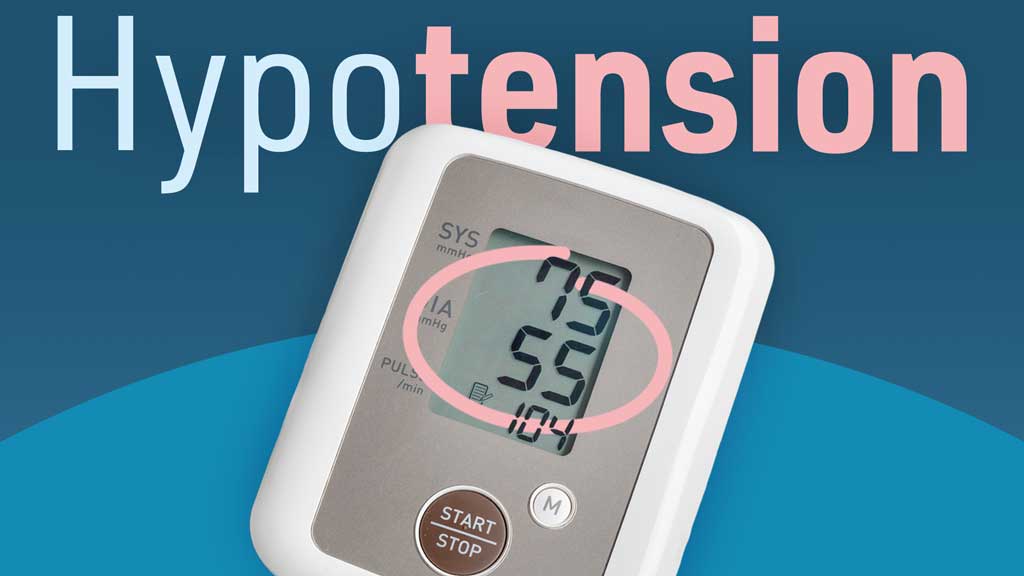26
Low Blood Pressure (Hypotension): Understanding Causes, Symptoms, and Management
Low blood pressure, or hypotension, occurs when blood pressure is consistently below 90/60 mmHg. While low blood pressure is generally considered beneficial, it can be problematic if it causes symptoms such as dizziness, fainting, or inadequate blood flow to vital organs. In this article, we will explore the causes, symptoms, diagnosis, and management strategies for low blood pressure.
Causes of Low Blood Pressure
Low blood pressure can result from various factors, including:
-
Pregnancy: The circulatory system expands during pregnancy, often leading to lower blood pressure.
-
Hormonal Problems: Conditions like hypothyroidism or Addison's disease can affect blood pressure regulation.
-
Medications: Certain drugs, such as diuretics, beta blockers, and antidepressants, can lower blood pressure.
-
Heart Conditions: Heart failure, heart valve problems, or abnormal heart rhythms can impair blood circulation.
-
Dehydration: Severe dehydration from vomiting, diarrhea, or fever can reduce blood volume and lower blood pressure.
-
Anemia: Lack of essential vitamins like B12 or iron can lead to anemia, which may cause hypotension.
-
Neurological Disorders: Conditions affecting the nervous system, such as neuropathy, can disrupt blood pressure regulation.

Symptoms of Low Blood Pressure
Symptoms of low blood pressure can include:
-
Dizziness and Lightheadedness: Feeling faint or unsteady.
-
Fainting: Passing out due to inadequate blood flow to the brain.
-
Fatigue and Weakness: Feeling tired or lacking energy.
-
Confusion: Difficulty concentrating or confusion.
-
Nausea: Feeling sick to the stomach.
-
Blurred Vision: Difficulty seeing clearly.
-
Cold, Clammy Skin: Skin may feel cool and damp.
Diagnosis of Low Blood Pressure
Diagnosis involves assessing symptoms and measuring blood pressure. Healthcare providers may perform additional tests to identify underlying causes, such as:
-
ECG (Electrocardiogram): To evaluate heart rhythm and function.
-
Echocardiogram: An ultrasound test to visualize the heart.
-
Blood Tests: To check for anemia or hormonal imbalances.
-
Tilt Table Test: To assess orthostatic hypotension.

Management and Treatment
Treatment focuses on addressing the underlying cause and alleviating symptoms:
-
Lifestyle Changes: Increasing fluid intake, eating smaller meals, and avoiding standing for long periods.
-
Medications: In some cases, medications like fludrocortisone may be prescribed to increase blood volume.
-
Compression Stockings: To improve blood flow back to the heart.
Complications of Low Blood Pressure
Untreated low blood pressure can lead to serious complications, including inadequate blood flow to vital organs, which can impair their function.
Conclusion
Low blood pressure can be a concern if it causes symptoms or is due to an underlying health issue. Understanding its causes, recognizing its symptoms, and seeking medical evaluation are crucial for effective management. By addressing the root cause and adopting appropriate lifestyle changes, individuals with low blood pressure can improve their quality of life and prevent complications.
References:
-
WebMD. (2023). Low Blood Pressure: Causes, Symptoms, and Treatment Options. Retrieved from https://www.webmd.com/heart/understanding-low-blood-pressure-basics
-
American Heart Association. (n.d.). Low Blood Pressure - When Blood Pressure Is Too Low. Retrieved from https://www.heart.org/en/health-topics/high-blood-pressure/the-facts-about-high-blood-pressure/low-blood-pressure-when-blood-pressure-is-too-low
-
Medical News Today. (2023). Low blood pressure (hypotension): Symptoms, causes, and prevention. Retrieved from https://www.medicalnewstoday.com/articles/159609
-
Better Health Channel. (n.d.). Blood pressure (low) - hypotension. Retrieved from https://www.betterhealth.vic.gov.au/health/conditionsandtreatments/blood-pressure-low-hypotension
-
Penn Medicine. (n.d.). Low Blood Pressure - Symptoms and Causes. Retrieved from https://www.pennmedicine.org/for-patients-and-visitors/patient-information/conditions-treated-a-to-z/low-blood-pressure
-
NHS. (n.d.). Low blood pressure (hypotension). Retrieved from https://www.nhs.uk/conditions/low-blood-pressure-hypotension/
-
Apollo Hospitals. (n.d.). Signs and Symptoms of Low Blood Pressure. Retrieved from https://www.apollohospitals.com/diseases-and-conditions/signs-and-symptoms-of-low-blood-pressure/
-
Narayana Health. (n.d.). Low Blood Pressure: Symptoms, Risk Factors, Diagnosis and Treatment. Retrieved from https://www.narayanahealth.org/diseases/low-blood-pressure

